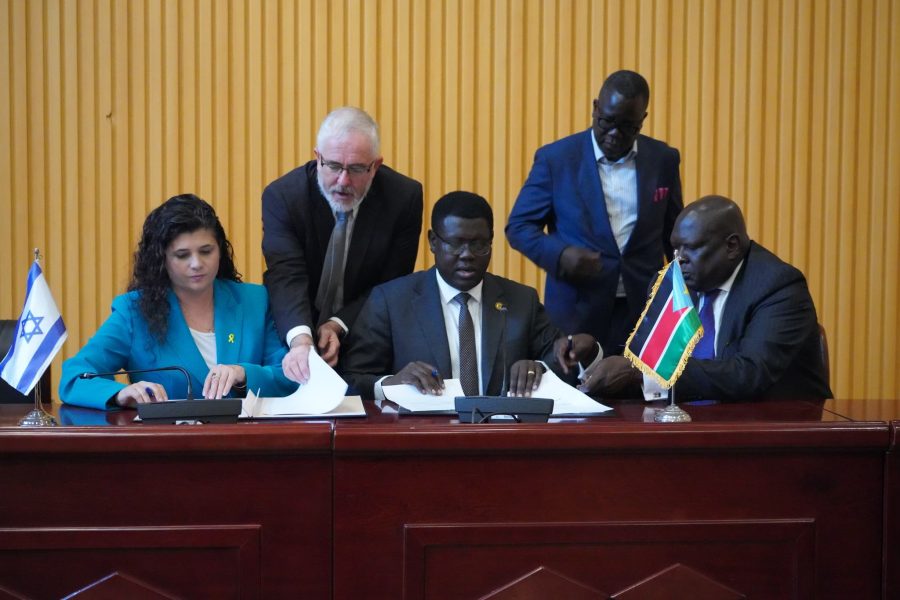
South Sudan and Israel formally signed a Memorandum of Understanding (MoU) on Bilateral Consultations on Wednesday, just hours after the South Sudanese government dismissed reports that it was considering hosting Palestinians displaced from Gaza.
The signing ceremony took place at the Ministry of Foreign Affairs and International Cooperation in Juba.
Ambassador Monday Semaya K. Kumba, South Sudan’s Minister of Foreign Affairs, and Sharren Haskel, Israel’s Deputy Minister of Foreign Affairs, led the delegations from their respective countries.
According to the ministry’s Facebook page, the MoU establishes a framework for enhanced dialogue and collaboration between the two governments, covering areas of mutual interest and providing a platform for regular consultations on regional and international issues.
Officials hailed the agreement as a significant step toward strengthening diplomatic relations between the two nations.
The ceremony came in the wake of media reports, including a story by the Associated Press, claiming that South Sudan was in negotiations with Israel to resettle Palestinians from Gaza, where civilians face conflict and humanitarian crises.
The Ministry of Foreign Affairs released a statement dismissing the claims as “baseless”:
“The Government of the Republic of South Sudan is not engaged in any discussions with the State of Israel on the resettlement of Palestinian nationals from Gaza,” the ministry said.
The ministry also urged journalists and media houses to verify information through official channels before publishing, particularly on sensitive international matters.
South Sudan, still recovering from years of internal conflict, continues to face significant humanitarian challenges, with millions internally displaced and dependent on aid.
Officials stressed that any suggestion of hosting foreign nationals fleeing another conflict is unfounded and misleading.
For now, the focus remains on the newly established framework for bilateral consultations, which officials say could open doors for cooperation in areas ranging from governance and economic development to regional stability.

